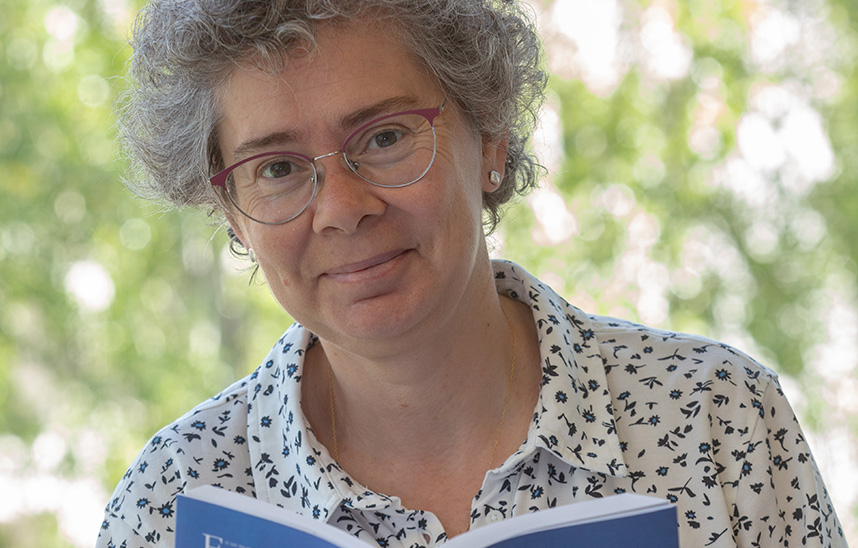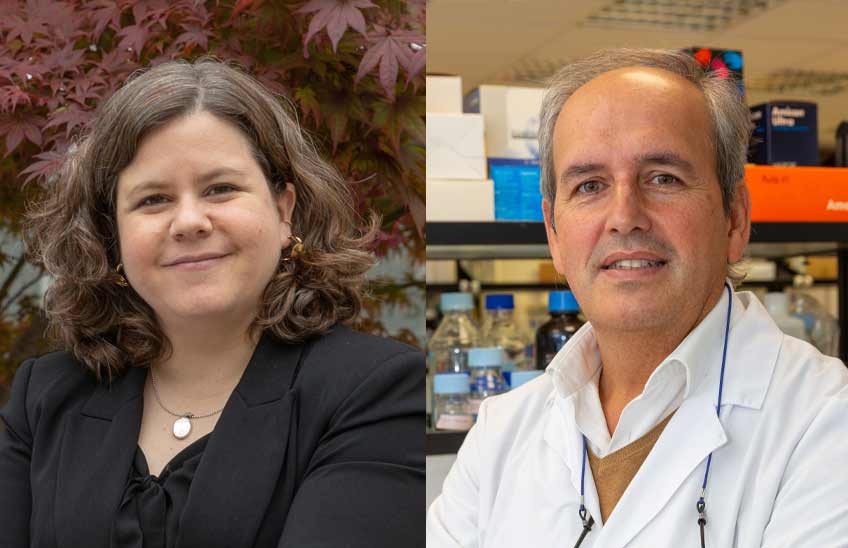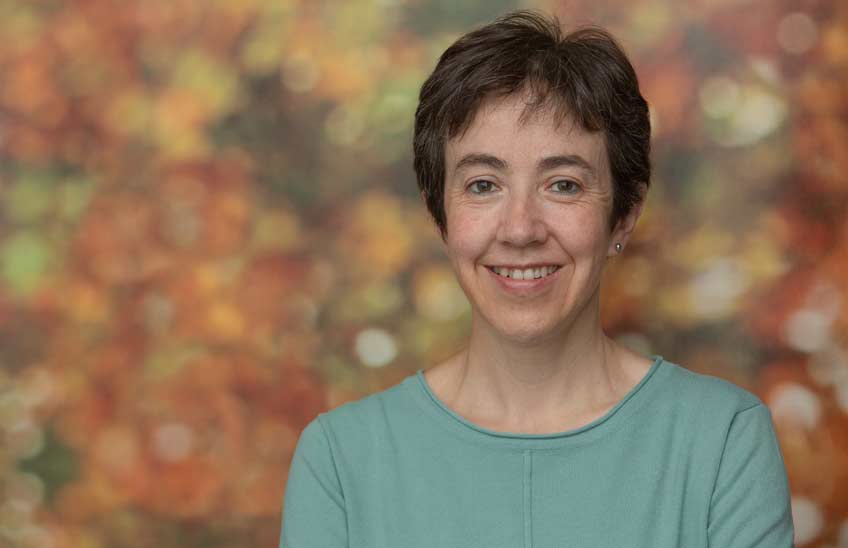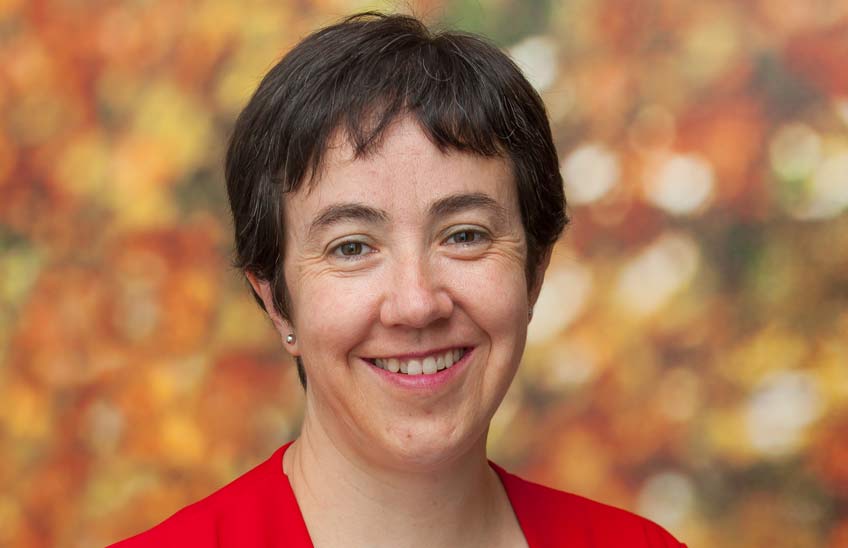"Ninety-five percent of home care at the end of life is provided by family members."
Steffen Eychmüller, Full Professor of palliative medicine, gave the IX ICS Lecture under degree scroll 'Caring in society, a revolution in progress'.
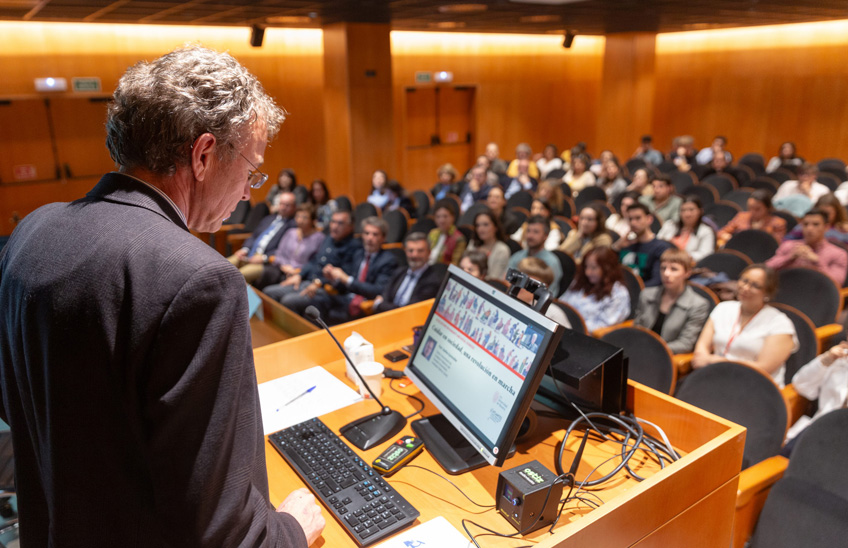
FotoManuel Castells<br>/Steffen Eychmüller, experto en medicina paliativa, expuso el impacto de las comunidades compasivas al final de la vida.
26 | 03 | 2024
"95% of home care at the end of life is provided by family members". With this fact Steffen Eychmüller, director of the University Center for Palliative Care at the Inselspital University Hospital (Bern, Switzerland), wanted to demonstrate the importance of the community at the end of life, beyond medicine. The Professor of Palliative Medicine at the University of Bern was the speaker of the IX ICS Lectures on Humanities and Social Sciences at the University of Bern. Institute for Culture and Society (ICS) of the University of Navarra entitled 'Caring in society, a revolution in progress'.
The expert explained that fundamental issues such as care, end of life, death and bereavement are not the responsibility of each individual, but a commitment shared by society as a whole. According to him, the end of life has become more complicated nowadays due to the lack of qualified healthcare staff , the high economic cost, polymorbidity (when several diseases occur at the same time) and the arrival of the baby boom generation at the end of life. In the face of these challenges, Eychmüller advocated the involvement of the whole of society in care, known as compassionate communities.
He assured that the patient's environment should be involved, not just delegated to them. "Dying is a social, relational and spiritual process, more than a medical phenomenon," he warned. He also gave several examples of compassionate communities and cities that are emerging around the world, such as Seville, Bern (Switzerland) or Kerala (India). In these communities, local networks open avenues of support for people who are dying, as well as for their caregivers and the bereaved. Thus, "local communities create a sense of security at the end of life," he said.
The importance of expectations
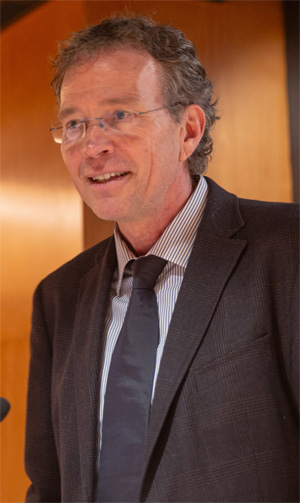 For the doctor, compassionate communities not only support the sick people and their environment, but also help to to raise awareness about end-of-life and demystify it. In this way, death is recognized as a socially valuable topic and financial aid to have appropriate expectations accordingly. According to Eychmüller, we should prepare for death just as we prepare and inform ourselves for the beginning of a new life. With a more adequate knowledge , the end of life can be properly assessed.
For the doctor, compassionate communities not only support the sick people and their environment, but also help to to raise awareness about end-of-life and demystify it. In this way, death is recognized as a socially valuable topic and financial aid to have appropriate expectations accordingly. According to Eychmüller, we should prepare for death just as we prepare and inform ourselves for the beginning of a new life. With a more adequate knowledge , the end of life can be properly assessed.
"Unrealistic expectations can create suffering and affect quality of life," he warned. Knowing more about what to expect at the end of life, having meaningful conversations, and achieving true connection can help people with advanced illness regain meaning in life, and may even have a greater healing factor than medical treatments.
In this sense, Eychmüller advocated bringing together the best of both worlds: seeking the best diagnosis and treatment but integrating it as early as possible and getting to know that person, patient-centered care. For the expert, the quality of conversations, whether with the patient, the family or other professionals, is a factor to be taken into account. "Death occurs in a social context so palliative care must also be shaped by the community, its values and priorities in order to respond to them," he explained.
Creating compassionate communities requires the support of local politicians, businesses and influential people in the community. Eychmüller said this causes a 'snowball' effect and opens up the spectrum of people who can help with awareness raising, the training, the volunteer activities, etc. "End of life must be integrated into the public diary and society, end of life is a test of social maturity," he concluded.
The Palliative Medicine line is one of the main axes of the 2025 Strategy of the University of Navarra, which promotes a social impact-orientedresearch and a scientific production focused, in this case, on the search for personalized solutions for the health care of patients with advanced and serious diseases.

